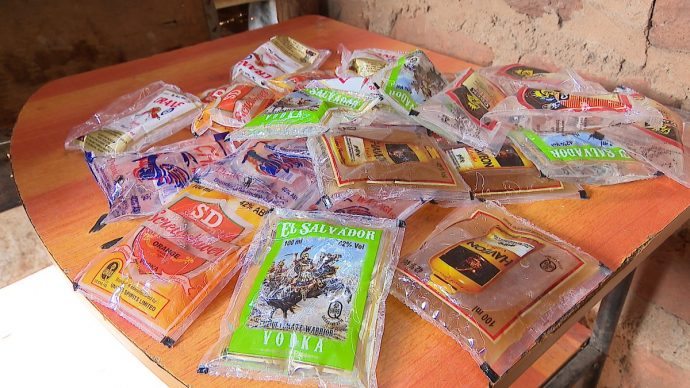
The National Agency for Food and Drug Administration Control has said that the ban on sachet alcohol is to safeguard the health of Nigerians.
The Deputy Director of public affairs of, Christy Obiazikwor, told Saturday PUNCH that NAFDAC signed an agreement with distillers and blenders, where a five-year grace was given for them to exhaust what they (distillers) had in stock.
She said, “Is five years not enough? We didn’t ban alcohol; we only banned it in small sachets and pet bottles. Sachet alcohol contains as much as 30 per cent of alcohol while beer contains just 4-8%. The alcohol content is so much, and we can’t leave it because Okada riders abuse it and children easily access it.”
“We are trying to safeguard the health of our nation, children and innocent Nigerians that will ride on Okada and even other users of the road that may become victims of this menace.”
On February 1, NAFDAC commenced the enforcement of the ban on alcoholic beverages in sachets, PET, and glass bottles of 200ml and below. The agency commenced nationwide enforcement actions on February 1, 2024.
Members of the Distillers and Blenders Association staged a protest on Tuesday, February 13, 2024, in the Ado-Odo Ota Local Government Area of Ogun State against the ban. This protest followed an earlier demonstration held on February 6, 2024, on the Lagos-Oshodi Apapa Expressway in Isolo, Lagos State.
Reacting to the distillers’ plea to reverse the ban, Christy said, “The way people have been reacting to the ban shows that it is a move in the right direction.
No normal person buys that drink and the drink goes into the wrong hands. Alcohol is something you drink responsibly; it is not meant to be handy.
“The outstanding sachet products and other materials could be recycled and used to produce other things. They have enough time to think outside the box.”
She also called on people to help in the fight against this menace.
On his part, a renowned psychologist who is also the founder and Executive Director, Global Initiative on Substance Abuse, Dr Martin Agwogie, noted that Nigeria had a high burden of disease for alcohol consumption, especially the locally brewed alcohol.





